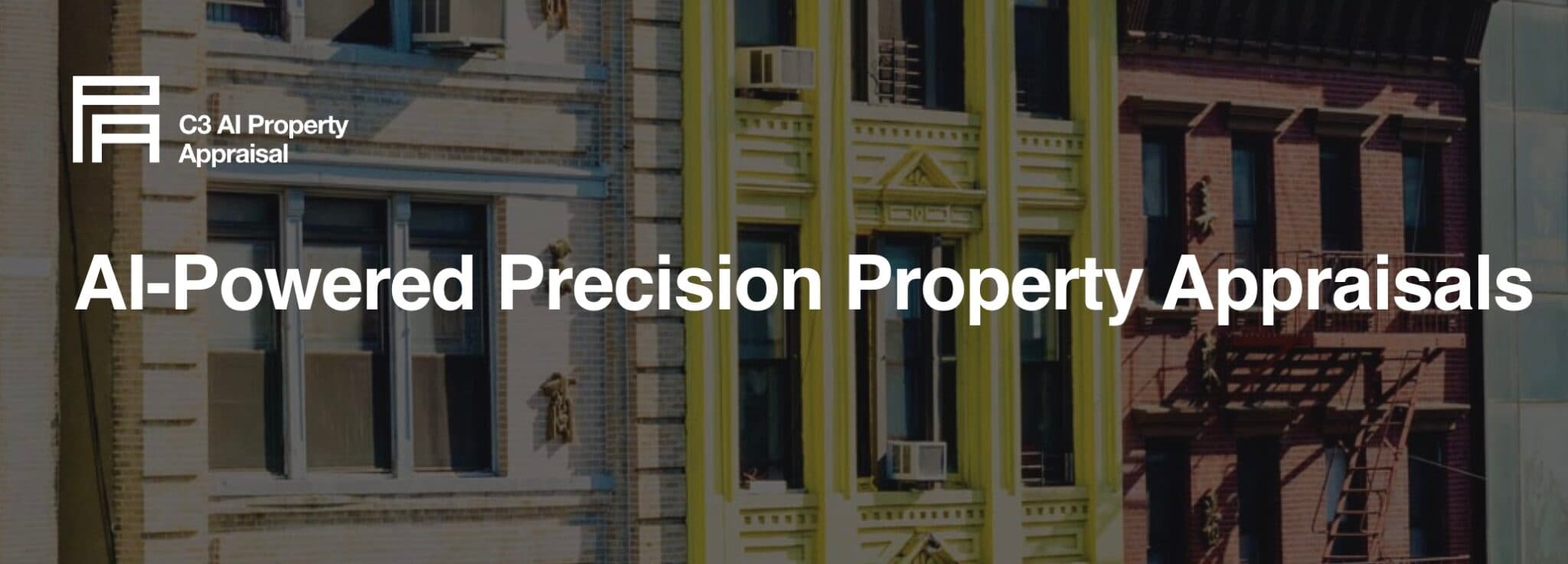AI in Real Estate: 7 Ways AI is Transforming Real Estate

Real estate pros, from top executives to agents, can use AI tools in a ton of ways to help speed up mundane tasks and make processes more efficient, already. If you’re in the industry, you’ll wanna understand the ways you can use AI in real estate to your advantage today.
Research from the McKinsey Global Institute suggests that generative AI could create an estimated $110 billion to $180 billion in value for the real estate sector within the next few years.
In this guide, we will explore seven of the most effective applications of generative AI in real estate, demonstrating how it’s transforming the industry and how you can benefit from it, too.
7 Rising Use Cases of AI in Real Estate
Without wasting any time, let’s look at some of the practical use cases of AI in real estate.
1. Improved Property Valuation
AI dramatically improves the precision of property valuations, which are vital to real estate transactions and investments.
It can analyze extensive datasets, including market trends and comparisons of similar properties, to provide real-time, data-driven insights.

This empowers you to set prices that are both competitive and equitable while optimizing appeal to buyers and financial returns for sellers.
This improvement in valuation accuracy leads to:
- Enhanced Market Responsiveness: AI systems are designed to continuously update and learn from new information, which allows them to adjust to market changes much more swiftly than traditional methods. This results in valuations that reflect the latest market conditions and provide clients with the most current and relevant information.
- Minimized Valuation Risks: The increased accuracy reduces the chances of properties being overpriced or underpriced, a common pitfall in real estate valuations. More reliable pricing builds client trust and enhances your credibility as a real estate professional. This leads to smoother transactions and long-term client relationships.
A good example is the C3 AI Residential Property Appraisal tool, which generates fair market value by emulating traditional appraisal workflows to support all residential property types. This boosts operation efficiency and increases appraisal accuracy.
2. Enhanced Property Search and Recommendation
AI is changing the process of how properties are searched for and suggested to potential clients. It examines historical data on client behaviors and preferences, along with the specific details in their requests, to pinpoint properties that best fit individual buyer profiles.
This customized approach ensures client satisfaction and makes the property search process quicker and more effective.
This also allows efficient personalization at scale, as AI’s proficiency in managing extensive datasets allows for personalization that is both quick and broad-reaching.
As a result, you can offer personalized, high-quality service to a large number of clients simultaneously, without the manual effort typically required.
When combined with image recognition to refine search parameters further, this becomes even more valuable. And we’ve seen this at play.

Matterport, a platform for transforming real-life spaces into immersive digital twin models, stands at the forefront of its industry by developing 3D virtual tours for properties. These tours use augmented reality and additional technologies to enable prospective buyers to virtually navigate a property before deciding to visit it physically.
This innovation expands the number of potential buyers as it allows individuals with internet access to thoroughly explore the property remotely. Additionally, it benefits buyers, sellers, and real estate agents economically by filtering out those who are genuinely interested, thereby saving resources and time.
3. Efficient Lead Generation
Finding the ideal client in real estate is a complex task that demands significant time investment and due diligence.
Closing deals in this sector is not straightforward and is typically a protracted process. However, artificial intelligence (AI) can greatly assist in lead generation.
“In what way?” you may ask.
There are many ways AI can support you in this process and fast-track things.
AI-backed CRM tools, for instance, can identify and target potential clients with high precision. They can take into account the purchase history of prospects, demographic data, online behaviors, and several other pointers to determine if they are just a tire kicker or a potential buyer.
This lets you eliminate time wasters earlier on and focus on leads that are more likely to purchase.

Case in point: Zillow uses machine learning models to predict the likelihood that a site visitor will contact a real estate agent, which indicates high intent to purchase a home. This capability is important for optimizing the experience of both users and real estate professionals who use the Zillow platform.
This will lead to:
- Higher Conversion Rates: With AI, marketing strategies become more targeted, reaching individuals who show real interest or intent, thus improving the efficiency of conversion rates.
- Cost Efficiency: AI-driven campaigns can dynamically allocate resources to high-performance channels, optimizing marketing spend.
Additionally, generative AI can greatly enhance the creation of marketing and advertising content. Tools like RightBlogger, for example, are designed to produce SEO-optimized articles, social media updates, ad copy, and cold emails efficiently. This technology not only saves your marketing and sales teams significant time but also optimizes your content to reach the right audience effectively.
4. Property Listing Creation
AI tools can automate the creation of property listings by gathering and synthesizing information about the property’s features and benefits, generating compelling and polished descriptions without human input.
When you eliminate the tedious task of manually writing each description, you can focus more on selling and less on administrative duties.
But there are other benefits as well, including:
- Scalability and Efficiency: AI technologies enable rapid generation of multiple property descriptions, ensuring consistency in tone and quality across all listings. This is particularly beneficial for real estate agencies handling large volumes of properties, as it helps maintain high-quality content without the need for extensive manpower.
- SEO Optimization: Some AI tools apply key SEO strategies within their descriptions to enhance the visibility of listings in search engine results.
RightBlogger is our AI-powered platform for content writers, bloggers, sales teams, and real estate agents. We even have a Real Estate Listing Generator tool.
Here’s a real example of a RightBlogger-generated property listing:

5. Streamlined Property Management
AI is revolutionizing property management by enhancing operational efficiency through automation of maintenance schedules, improvement of rent collection processes, and betterment of communications with tenants.
These advancements alleviate the administrative burdens faced by property managers, improve tenant satisfaction, and ensure consistent management practices across properties.
We can cite two distinct instances of AI helping to enhance property management:
One is predictive maintenance. A key application of AI in this field is predictive maintenance, which is gaining traction in the real estate industry.
Using both historical maintenance data and real-time sensor outputs from smart devices, AI predicts potential equipment failures and recommends timely repairs. This preventative strategy significantly reduces downtime, cuts repair costs, and helps avert potential disasters before they happen.
A great example of this technology is the IBM Maximo Application Suite, which offers you a wide range of tools for managing assets and maintenance. This suite features AI-driven predictive maintenance capabilities that help make maintenance schedules more efficient and use resources more effectively.
Another area is smart contracts. AI facilitates the use of smart contracts in property management. You can integrate AI with blockchain technology to automate and execute transactions such as lease renewals or rent payments upon meeting specified conditions. This integration helps streamline administrative procedures to ensure the accuracy and promptness of transactions.
6. Smart Property Analysis
AI can deepen your understanding of market conditions by analyzing large datasets. This includes comprehensive data on market trends and property developments, equipping you with the insights to make quick, informed decisions.
Zillow Research is a prominent example of how artificial intelligence is applied effectively in the real estate market. This platform uses AI to produce its “Zestimates,” which are unique estimates of property values.
Additionally, it creates tailored recommendations, floor plans, and visuals for users. Through predictive analytics, Zillow comprehends existing market trends and predicts upcoming shifts. This foresight allows real estate agents and investors to proactively adapt their strategies, giving them a competitive advantage in the market.
7. Fraud and Compliance Detection
This is another area where generative AI can make your life easier.
AI improves security and compliance in real estate transactions by monitoring transaction patterns and identifying anomalies that could indicate fraudulent activities.
It ensures that all dealings adhere strictly to the applicable laws and regulations, thereby mitigating legal risks.
For anomaly detection, AI can analyze transactional data to detect irregular patterns that may suggest fraud. This early detection helps prevent potential financial losses and safeguards both buyer and seller interests.
For example, unusual payment amounts or rapid successions of transactions from the same account can trigger alerts for further investigation.
The same thing goes for regulatory compliance. Some AI tools, like ComplyAdvantage, are equipped to automatically update in response to changes in real estate laws and regulations.

This proactive feature helps ensure that all transactions remain compliant, reducing the risk of legal issues and enhancing the reliability of business operations. They can adapt to new regulations, such as changes in property taxation or reporting standards, without manual intervention.
What are the Challenges of Implementing AI in Real Estate?
Like AI for writers and AI for marketing agencies, implementing generative AI in real estate is not without some hurdles. Let’s discuss three of those hurdles and some ways to skirt them.
Data Quality and Integrity
The foundation of effective AI solutions is high-quality data.
In real estate, this means accurate, timely, and comprehensive property data that includes historical sales, pricing trends, tenant demographics, and more.
AI systems rely on this data to make predictions and provide insights. Poor quality data can result in inaccurate outputs that may lead to costly decisions.
Ensuring data integrity involves rigorous data collection, validation, and regular updates, which can be resource-intensive but are crucial for AI reliability.
To improve your data quality, do the following:
- Establish Comprehensive Data Governance Protocols: Develop and implement a set of policies and standards that govern data acquisition, validation, storage, and use to ensure data remains accurate and comprehensive at all times.
- Utilize Advanced Data Cleaning and Anomaly Detection: Employ sophisticated data cleaning methods coupled with anomaly detection algorithms to enhance the quality of data. These methods help in identifying and correcting errors and outliers in the data, which can significantly skew AI predictions.
- Conduct Regular Data Audits: Periodically review both the data inputs and AI outputs. Regular audits help catch discrepancies and inconsistencies early, allowing for timely corrections that maintain the reliability of AI applications.
Complexity of AI Models
AI, particularly deep learning models, often suffer from a ‘black box’ issue, where the decision-making process is not transparent or understandable to users. This complexity can erode trust among your colleagues or employees, who may be hesitant to rely on insights they do not comprehend.
How to improve:
- Use explainable AI (XAI) methods to demystify AI processes and outcomes for end-users.
- Provide training for your real estate workers to help them understand AI tools, their capabilities and risks.
- Develop interfaces that clearly communicate AI findings in a user-friendly manner.
Adoption and Integration Challenges
Admittedly, integrating AI into existing systems poses significant technical and cultural challenges. Real estate businesses often use outdated software that is not compatible with modern AI technologies, requiring substantial upgrades or replacements.
Additionally, there is a cultural shift required for a workforce to adapt to new practices influenced by AI.
To make this work,
- Develop a phased integration plan that gradually introduces AI systems into existing workflows.
- Offer extensive training and support to staff to ease the transition.
- Choose flexible, scalable AI solutions that can be adapted and upgraded as needed
Using AI in Real Estate: How to Stay Ahead of the Curve
The integration of generative AI in real estate is not just a trend; it’s a transformative force that’s reshaping the industry landscape. With the McKinsey Global Institute projecting that AI could generate up to $180 billion in value for the real estate sector, the incentives for adopting this technology are clear.
Again, below is a brief highlight of some of the ways we’ve seen generative AI transform real estate operations:
- Dynamic Property Valuation: AI algorithms analyze vast datasets to offer real-time valuations, increasing accuracy, and market responsiveness. Tools like the C3 AI Residential Property Appraisal emulate traditional appraisal workflows digitally, boosting efficiency and precision.
- Personalized Property Recommendations: Platforms like Matterport utilize AI to create virtual tours and refine property searches, making the process more interactive and tailored to buyer preferences, thus enhancing client engagement and satisfaction.
- Efficient Lead Generation: AI-driven CRM systems predict buyer readiness and optimize lead targeting, as seen with Zillow’s predictive analytics enhancing user engagement and conversion rates on their platform.
- Automated Property Listings: AI tools like RightBlogger generate compelling property descriptions, streamlining listing creation with consistent, high-quality content that’s also SEO-optimized to attract more prospects.
- Streamlined Property Management: From predictive maintenance by IBM’s Maximo Suite to smart contracts for automated transactions, AI simplifies property management, reducing overhead and improving tenant relations.
- Advanced Market Analysis: AI systems like Zillow Research analyze trends to forecast market shifts, offering agents and investors critical insights that enable proactive strategy adjustments.
- Robust Fraud Detection: Tools equipped with AI monitor patterns to identify potential fraud, ensuring compliance and securing transactions against legal and financial risks.
Don’t be left behind as the real estate changes dramatically in the age of AI.
How does AI improve property valuation and appraisals?
AI improves property valuation by using lots of data to estimate a home’s value more accurately. It can compare similar homes, track market changes, and update estimates faster than manual methods.
This helps agents and sellers set prices that feel fair and competitive. It can also lower the risk of overpricing or underpricing, which can slow down a sale.
Some AI tools can even mimic parts of the traditional appraisal workflow to speed things up. The key is to treat AI as decision support, then confirm important details with local market knowledge.
To get the best results, make sure your property data is correct and up to date. Bad inputs like wrong square footage or missing renovations can lead to bad outputs.
How does AI make property search and recommendations more personal?
AI personalizes property search by learning what a buyer actually wants based on their clicks, saved homes, and stated needs. Then it suggests listings that better match their budget, location, and must-have features.
This can save time for both buyers and agents because people see fewer “almost right” homes. It also helps teams serve more clients at once without losing the personal touch.
AI can get even better when it uses image recognition and visual data, not just text filters. For example, it can help match buyers who like certain layouts, finishes, or exterior styles.
Virtual tours also fit into this workflow by letting buyers pre-screen homes before booking a showing. That can reduce no-show visits and keep attention on serious buyers.
How can AI help real estate agents generate better leads?
AI helps with lead generation by spotting which prospects are most likely to buy or sell soon. It can use signals like browsing behavior, prior inquiries, and basic demographic patterns to rank leads by intent.
That means you spend less time chasing tire kickers and more time talking to people who are ready to move forward. It can also improve follow-up timing, so leads hear from you when they are most engaged.
AI can support outreach, too, by drafting clearer emails and messages based on the lead’s situation. If you want help writing follow-ups faster, you can draft personalized outreach using RightBlogger’s Cold emails tool.
Even with AI scoring, it’s smart to keep a human review step. A quick call or text can confirm the person’s timeline and avoid wrong assumptions.
What parts of property management can AI automate or improve?
AI can streamline property management by automating routine work like maintenance scheduling, tenant communication, and rent reminders. This reduces manual admin tasks and helps keep operations consistent across multiple units.
One big use case is predictive maintenance. With past repair data and smart sensor signals, AI can flag likely equipment failures before they become expensive emergencies.
AI can also support “smart contract” style workflows where certain actions trigger automatically when conditions are met. For example, it can help reduce delays in lease steps or payment processing when the right approvals are in place.
The best results come from starting small, then expanding. Try automating one workflow first, measure the impact, and only then roll it out across more properties.
How does AI help with fraud detection and compliance in real estate?
AI helps detect fraud by looking for unusual patterns in transactions that a human might miss. It can flag things like strange payment amounts, rapid repeat transactions, or mismatched identity details for review.
This can protect both buyers and sellers by catching issues earlier, before money or paperwork goes too far. It also helps brokers and teams reduce costly mistakes during busy periods.
On the compliance side, some AI tools can track regulation updates and help teams follow the latest rules. That can lower legal risk, especially when requirements change fast.
It’s still important to use AI responsibly and keep humans in the loop for final decisions. If you want a simple overview of risks and best practices, read RightBlogger’s guide to AI ethics.
How can RightBlogger help me use AI for real estate marketing and listings?
RightBlogger can speed up real estate marketing by helping you create listing copy, ads, and other content faster. This is useful when you are managing many properties or need to publish quickly.
For example, you can use the Write listings tool to generate a clear, polished property description from basic details. You can then edit it to match your brand voice and local market terms.
If you also want stronger search visibility, focus on consistent keywords, clear headings, and helpful details buyers search for. Running an SEO check can help you spot gaps, and RightBlogger’s SEO Reports can guide what to improve.
AI works best when you treat it like a first draft, not the final product. Add real neighborhood context, accurate numbers, and your own expertise to make the content trustworthy.
Article by Ali Faagba
Ali Faagba is a B2B SaaS content strategist and writer for Close, Copysmith, and Userpilot. He covers AI and sales.
New:Autoblogging + Scheduling
Automated SEO Blog Posts That Work
Try RightBlogger for free, we know you'll love it.
- Automated Content
- Blog Posts in One Click
- Unlimited Usage





Leave a comment
You must be logged in to comment.
Loading comments...